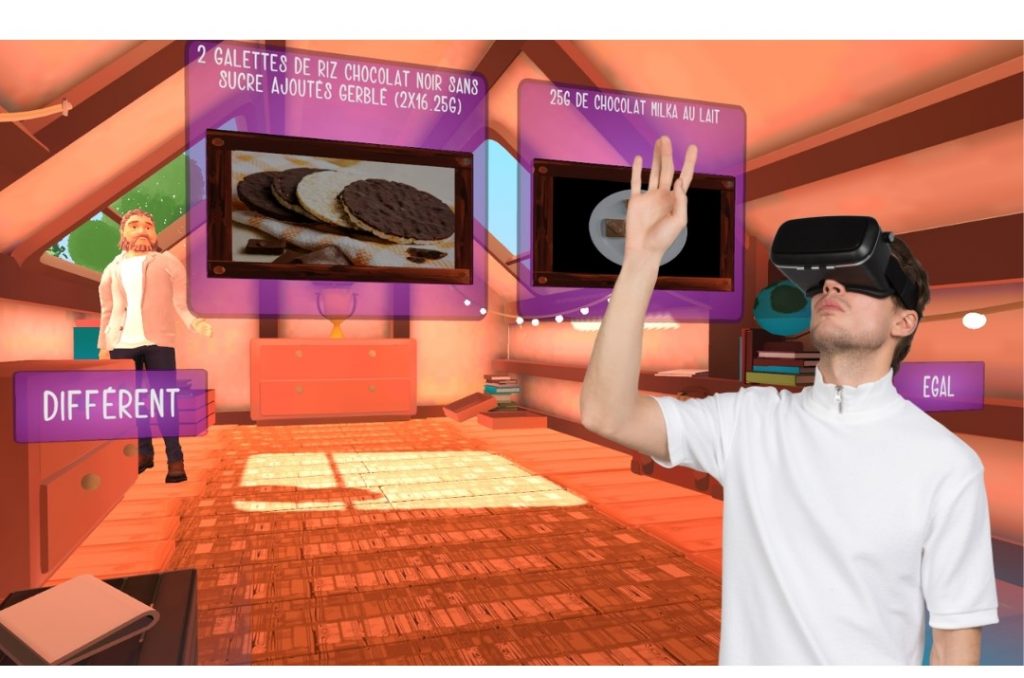Eating Disorders, such as anorexia and bulimia, affect a large number of people in France, including a young population. The management of these disorders is complex, especially when the diagnosis is made late. To address this, a team of healthcare professionals from CH Arras has developed VERTEXA (Virtual Reality Therapy Exposition in Anorexia), a therapeutic tool in virtual reality aimed at enabling early and innovative management of these disorders.
VERTEXA: VR at the service of eating disorder management
Eating disorders are increasingly prevalent in France, affecting nearly one million people. Unfortunately, treatment resistance and relapses are common. One of the major challenges in the French healthcare system is to diagnose these disorders as early as possible and to implement appropriate interventions at the onset of the first symptoms. This is where VERTEXA comes in, an innovative tool that uses VR to provide early and innovative care for eating disorders.
The VERTEXA project was initiated by a multidisciplinary team including physicians, psychologists, dieticians, and researchers from CH Arras. The program, developed in collaboration with Audace Digital Learning, is based on the digitization of the content from therapeutic day hospital sessions at CH Arras. And recently, it has been labeled by the Regional Health Agency (ARS) of Hauts-de-France as a “specialized healthcare service for the management of eating disorders.” VERTEXA aims to facilitate access to care for healthcare professionals in urban areas and their patients suffering from eating disorders. How? By offering an immersive and engaging therapeutic experience.
An engaging and educational immersion in the management of eating disorders.
The VERTEXA device consists of several modules. Each one focuses on a specific symptom of eating disorders. Thanks to a virtual reality headset, the patient becomes an active participant in their own role and treatment. The sessions last approximately 20 minutes and are conducted several times per week. They allow the patient to actively engage in the management of their condition within a reassuring and engaging environment. Indeed, by adopting a playful and narrative approach, VERTEXA promotes patient engagement and adherence to the treatment. It then offers the possibility to convey important educational messages to the patient.
The therapeutic game offers several mini-games and workshops, developed in collaboration with Audace Digital Learning, aimed at combating false beliefs about food and body image disorders. To maintain the patient’s motivation throughout the treatment journey, the software offers a progression with increasing levels of difficulty. The game unlocks rewards, which positively reinforces the changes achieved in the patient’s real life.
The medical teams also have the ability, through a dedicated web interface, to monitor the patient’s adherence and progress. Indeed, the tool allows the doctor to obtain key indicators of the patient’s physical health progress (e.g., automatic calculation of certain measurements) or mental well-being (e.g., daily self-assessment).
“Ultimately, the advantage of VERTEXA is that it allows healthcare professionals who do not have access to a comprehensive care setup to benefit from the expertise of an experienced multidisciplinary team in supporting patients with anorexia. This support is provided at an early stage, before the symptoms worsen and hospitalization becomes necessary, which is often delayed. Indeed, early initiation of treatment is the only prognostic factor in this pathology. ”
Dr Vincent FLORENT, MD PhD, nutritionist physician, head of the TCA (Eating Disorders) unit at CH d’Arras,
clinician researcher at INSERM U1172 Lille Neurosciences and Cognition.

